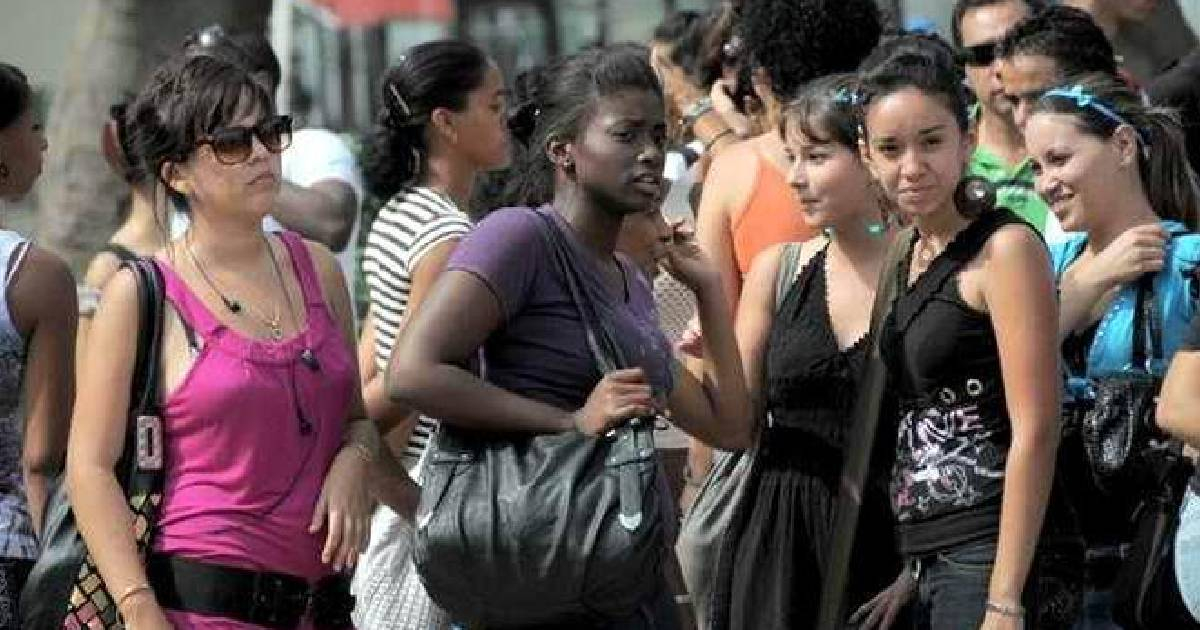
The Cuban government created a national system for registering, addressing, tracking, and monitoring cases of gender-based violence in the family setting, according to statements made at a meeting of the Council of Ministers.
A report from the official newspaper Granma mentions that the System is made up of "25 experts" from the Ministry of the Interior and the Supreme People's Court, and its goal is to develop "a computerized and interoperable administrative registry that would use the institutions' own platforms for the management of criminal processes."
The Attorney General of the Republic, Yamila Peña Ojeda, indicated that the main usefulness of this tracking is to serve as a database to “have statistical information for prevention in the fight against acts of gender-based violence.”
For the Cuban leaders, "the implementation of the National Registration System and the transparency of results strengthens the rule of law, helps discourage acts of violence, combats impunity, enhances the legal education of the population, and strengthens the social fabric around an issue that concerns everyone," defended Peña Ojeda.
Likewise, the Cuban Attorney General stated that during 2023, the regime of the island obtained data on these cases, among which it was notable that 75% of the incidents occurred in the home, and warned that this trend continues this year.
Additionally, 72% of the incidents involved victims aged between 25 and 59 years; 45% are unpaid workers.
They assured that "the survivors who suffered abuse during the relationship were identified, and those who made previous reports for threats or injuries, which were sometimes withdrawn as part of the cycle of violence."
Peña Ojeda stated that, according to his data, 84% of the perpetrators were current or former partners; 46% had completed ninth grade; 40% had a work-related connection; and 31% had criminal records for violent acts.
Despite those percentages, the government continues to be unclear about the figures it handles, and there is little clarity in the numbers provided to the population, especially when the Cuban feminist platforms, which have been working tirelessly to recover and denounce the cases, have recorded 220 femicides on the island from 2019 to 2023, of which 89 occurred in that last year.
Both the independent observatories Alas Tensas (OGAT) and YoSiTeCreoCuba make their records under the passive gaze of authorities who refuse to acknowledge that the violent death of women is a growing problem.
In its Council of Ministers, the regime outlined its guidelines for assessing gender violence: actions in a position of dominance; stating that men were dissatisfied with the breakup of relationships. Another aspect is that some took advantage of the presence of children to inflict more suffering; as well as the use of knives or firearms, or the attackers' own hands.
It is also important to recognize that the Cuban regime does not include the figure of femicide in the current Penal Code, which was approved in May 2022.
While hidden behind semantic arguments and cheap political maneuvering, the prevailing communist totalitarianism in Cuba avoids discussing gender violence with the terminology that is internationally used and accepted by all countries that recognize its existence and fight this scourge.
For his part, the ruler Miguel Díaz-Canel has described femicide as a "media construction" of independent media.
"The subversive anti-Cuban platforms try to impose the narrative that there is feminicide in Cuba, a term that indicates alleged state inaction in the face of violent acts due to gender. We can categorically assert here that this is a media construction completely alien to Cuban reality," affirmed Díaz-Canel last March at the closing of a Congress of the bland Federation of Cuban Women.
The justification for not doing so, according to Díaz-Canel, is that there is no "state inaction" in the face of these crimes. The subterfuge aims to cover up the deeply patriarchal and macho nature that underlies Cuban society and, especially, in the virile imagery developed by the propaganda of the so-called "revolution" and the indoctrination of the Communist Party of Cuba.
What do you think?
COMMENTFiled under: